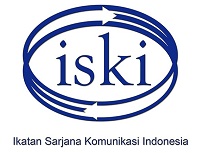Faktor demografis untuk meningkatkan informasi, edukasi, dan komunikasi kesehatan seksual dan reproduksi
Abstract
Memahami siapa yang kurang berpengetahuan sangat penting dalam menentukan kebijakan yang berkaitan dengan aktivitas komunikasi, informasi, dan edukasi untuk meningkatkan pengetahuan kesehatan seksual dan reproduksi Remaja Indonesia. Penelitian ini mencoba untuk menegaskan kembali mengenai faktor-faktor demografis yang berhubungan dengan pengetahuan kesehatan seksual dan reproduksi remaja Indonesia. Penelitian ini menggunakan survei demografi dan kesehatan Indonesia (SDKI) tahun 2017, yang secara khusus melakukan survei kepada perempuan dan laki-laki belum menikah usia 15-24 tahun. Sampel survei diambil dari wawancara terhadap 48.963 rumah tangga, dengan rata-rata usia responden adalah 18,59 tahun. Dengan menggunakan analisis bivariat dan regresi, penelitian ini dapat menunjukkan bukti bahwa faktor usia, jenis kelamin, pendidikan, dan tempat tinggal memiliki asosiasi dengan pengetahuan kesehatan seksual dan reproduksi remaja Indonesia. Remaja perempuan yang belum menikah berusia 15-24 tahun, memiliki pengetahuan yang lebih baik dibandingkan laki-laki. Remaja dengan tingkat pendidikan yang lebih tinggi memiliki pengetahuan yang lebih baik dibandingkan dengan yang tingkat pendidikannya lebih rendah. Dengan bertambahnya usia responden, cenderung memiliki pengetahuan kesehatan dan seksual yang lebih baik. Terakhir, remaja yang tinggal di perkotaan cenderung lebih berpengetahuan dibandingkan dengan responden yang tinggal di pedesaan. Dengan demikian, sangat penting untuk menyempurnakan kebijakan dengan memberikan penekanan praktik komunikasi-informasi-edukasi kesehatan reproduksi dan seksual terhadap remaja laki-laki usia muda yang tinggal di pedesaan, dengan tingkat pendidikan yang lebih rendah, karena merekalah yang kurang memiliki pengetahuan kesehatan reproduksi seksual.
Keywords
Full Text:
PDFReferences
Bertrand, J. T., & Kincaid, D. L. (1996). Evaluating information-education-communication (iec) programs for family planning and reproductive health. Carolina Population Center, University of North Carolina at Chapel Hill.
BKKBN-National Population and Family Planning Board, BPS-Statistics Indonesia, Ministry of Health-Kementerian Kesehatan Republik Indonesia, & ICF International. (2017). Indonesian Demographic and Health Survey 2017: Adolescents Reproductive Health. Jakarta, Indonesia: BKKBN, BPS, Kemenkes, and Rockville, Maryland, USA: ICF.
BKKBN, BPS, Kementerian Kesehatan RI, & ICF International. (2017). Survei demografi dan kesehatan: kesehatan reproduksi remaja 2017. survei demografi dan kesehatan Indonesia 2017. Jakarta, Indonesia: BKKBN, BPS, Kemenkes, and Rockville, Maryland, USA: ICF.
Cleland, J., Ingham, R., & Stone, N. (2001). Asking young people about sexual and reproductive health behaviours: illustrative core instruments. hrp - special programme of research, development and research training in human reprodcution. UNDP, UNFPA, WHO, World Bank.
Figueroa, M. E., Kincaid, D. L., Rani, M., & Lewis, G. (2002). Communication for social change: an integrated model for measuring the process and its outcomes (The Communication for Social Change Working Paper Series No. 1). https://doi.org/10.1097/00006454-198804000-00003
Fishbein, M., & Ajzen, I. (2010). Predicting and changing behaviour: the reasoned action approach. New York: Psychology Press, taylor & francis Group.
Hull, T. H., Hull, V. J., Utomo, I. D., & Adioetomo, S. M. (2005). Peope, population, and policy in Indonesia. (Terrence H. Hull, Ed.). Jakarta: Equinox Publishing - Ford Foundation.
Hunt, D. P. (2003). The concept of knowledge and how to measure it. Journal of Intellectual Capital, 4(1), 100–113. https://doi.org/10.1108/14691930310455414
Ingham, R., & Hirst, J. (2010). Promoting sexual health. In P. Aggleton, C. Dennison, & I. Warwick (Eds.), Promoting health and wellbeing through schools (pp. 1–177). New York: Routledge.
Kantor, L. M., Rolleri, L., & Kolios, K. (2014). Doug Kirby’s contribution to the field of sex education. Sex Education, 14(5). https://doi.org/10.1080/14681811.2014.881336
Kirby, D. (1985a). Sexuality education: a more realistic view of its effects. Journal of School Health, 55(10), 421–424. https://doi.org/10.1111/j.1746-1561.1985.tb01169.x
Kirby, D. (1985b). The effects of selected sexuality education programs: Toward a more realistic view. Journal of Sex Education and Therapy, 11(1), 28–37. https://doi.org/10.1080/01614576.1985.11074819
Kirby, D., Barth, R. P., Leland, N., & Fetro, J. V. (1991). Reducing the risk: Impact of a new curriculum on sexual risk-taking. Family Planning Perspectives, 23(6), 253–263. https://doi.org/10.2307/2135776
Kirby, D., & Coyle, K. (1997). School-based programs to reduce sexual risk-taking behavior. Children and Youth Services Review, 19(5–6), 415–436. https://doi.org/10.1016/S0190-7409(97)00025-X
Kirby, D., & Laris, B. A. (2009). Effective curriculum-based sex and STD/HIV education programs for adolescents. Child Development Perspectives, 3(1), 21–29. https://doi.org/10.1111/j.1750-8606.2008.00071.x
Kirby, D., Laris, B. A., & Rolleri, L. A. (2007). Sex and hiv education programs: their impact on sexual behaviors of young people throughout the world. Journal of Adolescent Health, 40(3), 206–217. https://doi.org/10.1016/j.jadohealth.2006.11.143
Kirby, D., Short, L., Collins, J., Rugg, D., Kolbe, L., Howard, M., … Zabin, L. S. (1994). School-based programs to reduce sexual risk behaviors: A review of effectiveness. Public Health Reports, 109(3), 339–360.
Needham, H. E., Wiemann, C. M., Tortolero, S. R., & Chacko, M. R. (2010). Relationship between health literacy, reading comprehension, and risk for sexually transmitted infections in young women. Journal of Adolescent Health, 46(5), 506–508. https://doi.org/10.1016/j.jadohealth.2009.11.195
Parvanta, S. A., & Parvanta, C. (2011). Persuasive health communications: the role of theory. In C. Parvanta, D. E. Nelson, S. A. Parvanta, & R. N. Harner (Eds.), Essentials of Public Health Communication (pp. 145–158). Sudburry, MA: Jones & Bartlett Learning, LLC.
Peraturan Pemerintah RI nomor 87/2014 tentang perkembangan kependudukan dan pembangunan keluarga, keluarga berencana, dan sistem informasi keluarga (2014). Indonesia.
Putri, N. E., Hakim, N., & Yamin, M. (2016). Ecologicall footprint and biocapacity analysis for flooding prevention in South Sumatera. Jurnal Mimbar, 32(1), 58–64. Retrieved from https://ejournal.unisba.ac.id/index.php/mimbar/article/view/1729/pdf
Rankin, K., Heard, A., & Diaz, N. (2016). Adolescent sexual and reproductive health: the state of evidence on the impact of programming in low- and middle- income countries (3ie Scoping Paper No. 5).
Salirawati, D., Ratna, K., & Endarwati, M. L. (2014). Survey terhadap pemahaman pendidikan seks dan sikap/perilaku seks di kalangan remaja di Daerah Istimewa Yogyakarta. Jurnal Penelitian Humaniora, 19(1), 85–95.
Setianti, Y., Hafiar, H., Damayanti, T., & Nugraha, A. R. (2019). Media informasi kesehatan reproduksi bagi remaja disabilitas tunagrahita di Jawa Barat. Jurnal Kajian Komunikasi, 7(2), 170. https://doi.org/10.24198/jkk.v7i2.22655
Utomo, I. D. (1997). Sexual attitudes and behaviour of middle-class young people in Jakarta. The Australian National University.
Utomo, I. D., & Mcdonald, P. (2008). Religion , media , westernisation and sexuality among young people in urban middle class Indonesia. Intersections: Gender and Sexuality in Asia and the Pacific, (18).
Utomo, I. D., & Mcdonald, P. (2009). Adolescent reproductive health in indonesia : contested values and policy inaction. Studies in Family Planning, 40(2), 133–146.
Utomo, I. D., McDonald, P., & Hull, T. H. (2012). Gender and reproductive health study improving reproductive health education in the indonesian national curriculum. Canberra.
Utomo, I. D., McDonald, P., Reimondos, A., Utomo, A., & Hull, T. H. (2014). Do primary students understand how pregnancy can occur? A comparison of students in Jakarta, West Java, West Nusa Tenggara and South Sulawesi, Indonesia. Sex Education, 14(1), 95–109. https://doi.org/10.1080/14681811.2013.833503
DOI: https://doi.org/10.24198/jkk.v9i1.32722
Refbacks
- There are currently no refbacks.
Copyright (c) 2021 Syauqy Lukman

This work is licensed under a Creative Commons Attribution-NonCommercial-ShareAlike 4.0 International License.
Jurnal Kajian Komunikasi Indexed by:
Editorial Office of Jurnal Kajian Komunikasi:
Faculty of Communication Science, Universitas Padjadjaran
Jl. Raya Bandung-Sumedang Km. 21 Jatinangor, Sumedang 45363, Indonesia
WA: +6282316731181 (Chat Only)
Telephone: +62227796954
Faxmile: +62227794122
E-mail: jurnal.kajian.komunikasi@unpad.ac.id
Jurnal Kajian Komunikasi Supervised by:











